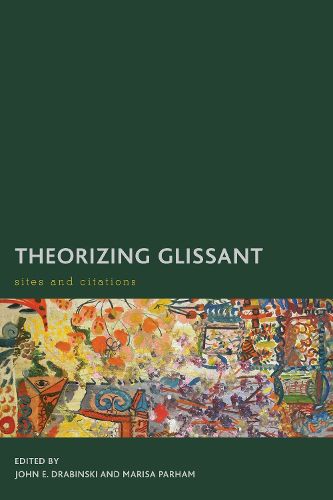Readings Newsletter
Become a Readings Member to make your shopping experience even easier.
Sign in or sign up for free!
You’re not far away from qualifying for FREE standard shipping within Australia
You’ve qualified for FREE standard shipping within Australia
The cart is loading…






Edouard Glissant’s work has begun to make a significant impact on francophone studies and some corners of postcolonial theory. His literary works and criticism are increasingly central to the study of Caribbean literature and cultural studies. This collection focuses on the particularly philosophical register of Glissant’s thought.
Each of the authors in this collection takes up a different aspect of Glissant’s work and extends it in different directions. twentieth-century French philosophy (Bergson, Badiou, Meillassoux), the cannon of Caribbean literature, North American literature and cultural theory, and contemporary cultural politics in Glissant’s home country of Martinique all receive close, critical treatment. What emerges from this collection is a vision of Glissant as a deeply philosophical thinker, whose philosophical character draws from the deep resources of Caribbean memory and history. Glissant’s central notions of rhizome, chaos, opacity, and creolization are given a deeper and wider appreciation through accounts of those resources in detailed conceptual studies.
$9.00 standard shipping within Australia
FREE standard shipping within Australia for orders over $100.00
Express & International shipping calculated at checkout
Edouard Glissant’s work has begun to make a significant impact on francophone studies and some corners of postcolonial theory. His literary works and criticism are increasingly central to the study of Caribbean literature and cultural studies. This collection focuses on the particularly philosophical register of Glissant’s thought.
Each of the authors in this collection takes up a different aspect of Glissant’s work and extends it in different directions. twentieth-century French philosophy (Bergson, Badiou, Meillassoux), the cannon of Caribbean literature, North American literature and cultural theory, and contemporary cultural politics in Glissant’s home country of Martinique all receive close, critical treatment. What emerges from this collection is a vision of Glissant as a deeply philosophical thinker, whose philosophical character draws from the deep resources of Caribbean memory and history. Glissant’s central notions of rhizome, chaos, opacity, and creolization are given a deeper and wider appreciation through accounts of those resources in detailed conceptual studies.